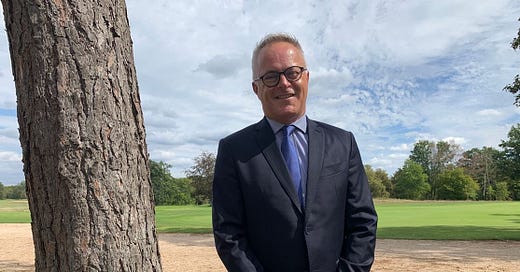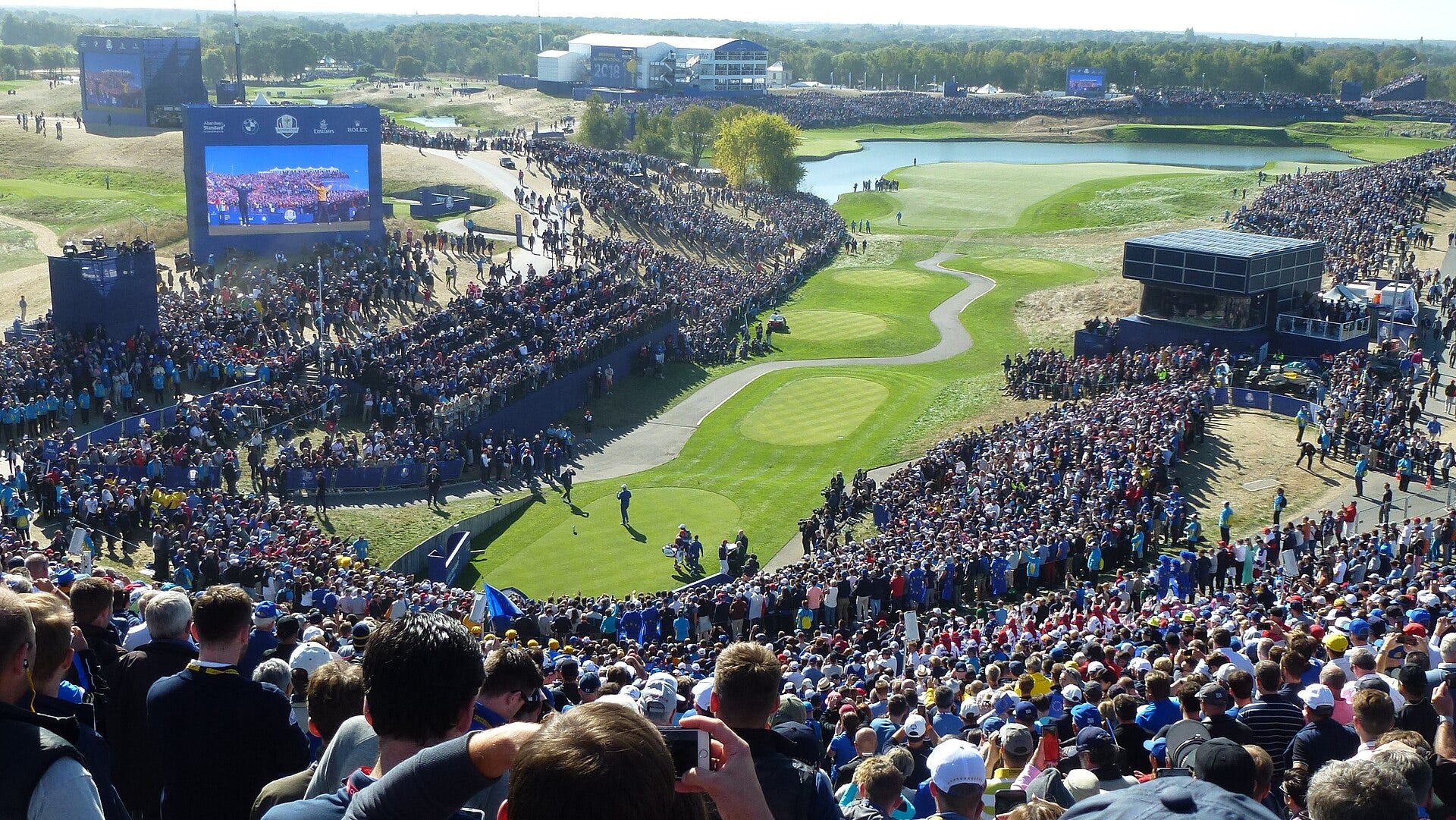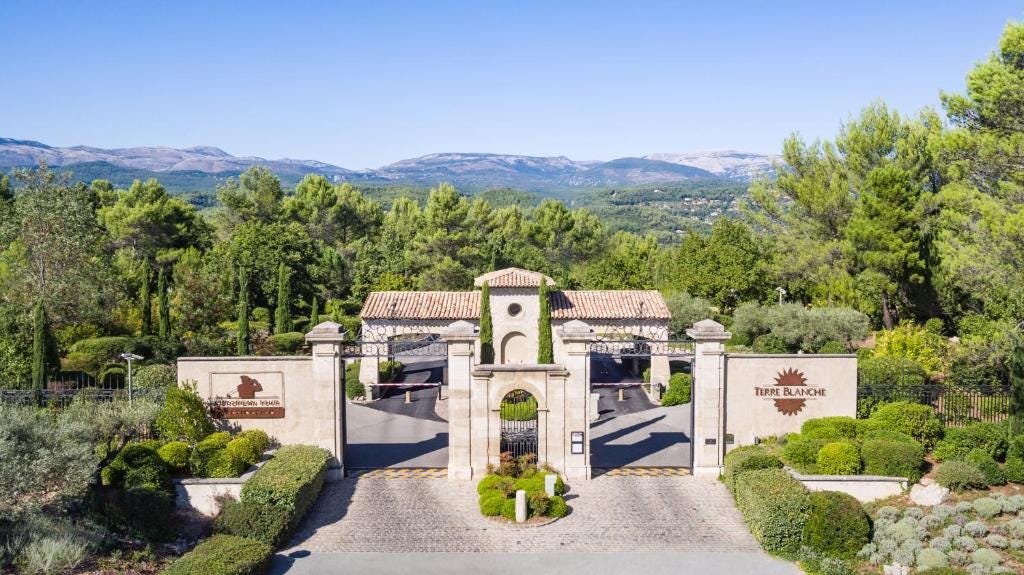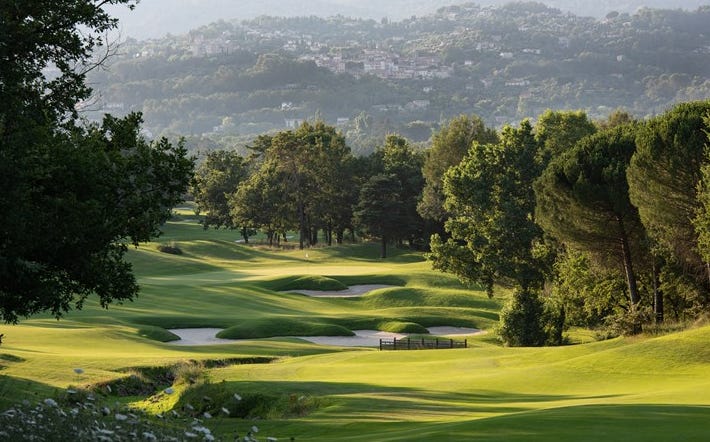Six Questions For... Paul Armitage of Terre Blanche Hotel Spa Golf Resort
The three-decade veteran of the French golf industry on barriers to participation, the complexity of resort operations, 54-hole childhood days, and the fun (and stress!) of Ryder Cup preparations.
About Paul Armitage
Paul Armitage brings over 35 years of experience to his current role as Head of Development at Terre Blanche Hotel Spa Golf Resort in Provence, France. His journey began in 1991 when he arrived in France as a sales executive, working his way up through every aspect of club operations — including cutting greens, serving in restaurants and managing club reception desks on the weekends.
After managing a small golf club in Burgundy, Paul became regional manager of one of France's major golf networks before building an alliance of independent golf courses from 15 clubs to 140 over eight years.
In 2012, Paul was appointed General Manager of Le Golf National just as the club won the bid to host the 2018 Ryder Cup. His role was transformative — preparing the venue, staff, and infrastructure for one of global golf's biggest events. The pressure was immense, but the result was spectacular: Europe's victory on home soil, with Paul's staff handling all clubhouse operations for both teams throughout the week.
That experience led to further opportunities as Head of Golf with the 2024 Paris Olympics and another spell with the Ryder Cup Europe at the 2023 tournament at Marco Simone in Italy.
Since 2020, Paul has been based in the south of France, bringing his wealth of experience to the role of Head of Development at Terre Blanche, one of Europe’s most prestigious resorts.
Six Questions For... Paul Armitage
The Wedge: Hey Paul, great to meet you. First question, you were General Manager at Le Golf National in Paris when it hosted the 2018 Ryder Cup. It’s such an iconic event — what was your main responsibility then, and what was the preparation like?
PA: My job was really being the man in the middle between the French Federation, the owners of the site, Ryder Cup Europe, all the various rights-holders to make sure they got everything they needed.
The preparation was incredibly busy, and extremely stressful at times, especially during 2015-2016. We went through €7m of work to get ready — we had to bring in drinking water, sewage systems and waste management for 50,000 spectators. We didn't have proper roads, so we moved from dirt tracks to concrete roads 4 meters wide to get 30-ton lorries in. We installed major new irrigation and drainage systems.
As for the week itself, what made it extra special for us was that Ryder Cup Europe allowed our golf staff to take care of everything for the teams instead of bringing in their own people. We handled all the clubhouse services — food and beverage, reception areas, team rooms, locker rooms, driving ranges, concierging. Basically whatever the players, captains, vice-captains, and supporting staff needed for that week, our team provided.
Getting to bed at 1am and getting up at 5 for 10 days, but you didn't feel any tiredness because it was so thrilling. And then we got the win, and kept [Europe captain] Thomas Bjorn happy by producing the golf course he wanted.
It was an amazing experience.
The Wedge: Interest in golf is at an all-time high, but what do you think is the biggest barrier in getting people who have become interested in the game to actually pick up a club and play?
PA: I think problem number 1 is defining and identifying the product to the non-golfer consumer, so that they can understand what kind of a golf course they’re coming to when they walk through the gate. In the hotel world, you have 1-star, 2-star, 3-star, 4-star and so on, and people can easily know and choose the type of product they want. Golf courses don’t have a real identity or common language, and as a result it can be difficult for people to find exactly what they’re looking for, which creates barriers and friction.
The second thing I would say is that the way we teach golf is an issue. When you go skiing for the first time, you have a two- or three-hour lesson in the morning, then after lunch you get to go down the baby slope — and actually start skiing. In golf, until recently, we didn’t really allow that. You'd have your lesson, but then you’d have to stay on the driving range for weeks or even months. We weren't very good at letting people get onto the real golf course very quickly. A lot of golf courses aren’t equipped with a short three-hole or six-hole course for beginners, and I think that will come in future.
Finally, and sticking with the skiing comparison, there's also an image or messaging problem around the cost of playing golf. Six million French people go on at least a 1-week skiing holiday every year, which will cost them somewhere between €2,000 and €4,000. A year of golf in France will cost you around €1,000 — that’s a year of golf versus a week of skiing, but people will still say golf is elite or too expensive.
The Wedge: Which mentor in your early golf career had the biggest impact on your approach to business?
PA: I would say my first golf manager, Jacques Maniette, in Dijon. He was everything I was not, and I was everything he was not. He was very structured, very focused on business administration, financial management, ratios, revenue, yield management — thinking about how to get more people in on a Saturday night or fill an empty restaurant on Monday lunchtime.
Meanwhile, I was the crazy, funky animator, running around making people enjoy their experience, opening doors when they walked through the clubhouse, while he would be hidden away upstairs in his office doing Excel sheets!
We worked together for three or four years, and that complementary relationship taught me the other side — it's great to bring in the cash, but how do you spend it? How do you get a return on investment? How do you make it all make sense as a business, rather than hope there's a bank balance at the end of the year?
I learned that he hired somebody to compensate for his weaknesses, and that influenced my future recruiting when I became a manager too.
The Wedge: What's the most impressive innovation you've seen in the golf industry?
PA: On the consumer side, there have been fantastic innovations over the past 15 years.
Topgolf has really made everybody change the way they look at consumer golf, including all the digital elements — technology and tracking.
Technology has also led to the development of indoor golf, allowing you to play courses from anywhere in the world from a bay in a club or in your home. You can experience that technology — Trackman and Toptracer and other innovations where you can track your clubhead speed and launch angle and all sorts of stuff — on nearly every driving range and every indoor golf venue now.
That’s the consumer side. On the operator side, there’s room for improvement in terms of innovation. One of our big challenges at our resort — and this is shared by operators everywhere — is we have hotel rooms to book, academy lessons, tee-times, memberships, spa treatments, several different food and beverage outlets. Resorts might have eight different business units, with eight different property management software systems — that don't talk to each other.
So if you want to book a lovely two-day stay-and-play package — two nights, two different restaurants, both golf courses, a spa massage, some retail shopping, maybe a golf lesson — you might get eight different email confirmations, you’ll be dealing with four or five different people, and there will be four different databases in the back office. That’s a customer experience that’s far from ideal.
The innovation — and I know it's on its way — is the all-in-one resort solution where your booking is smooth, you have one person to book with, everything's in one application with one confirmation. The people who bring that to our industry will have created something truly valuable.
The Wedge: Looking to the future, what are you working on now that you're excited to see in 12 months' time?
PA: Terre Blanche is 21 years old and we’re going through a strategic change in direction right now. Since it opened in 2004 it's always been an amazing resort, a 5-star palatial hotel with a magnificent spa and La Faventia, our Michelin-starred restaurant.
But Terre Blanche is going to be more focused on golf in the future and become more recognizable as a golf resort. We have a golf academy that’s second to none, we’re investing a lot in our amateur teams, and we also have the elite teams from the French Federation, who train here on a permanent basis. We'll be renovating both golf courses in 2026-2027, putting in significant investment, with an ambition to get the courses on many golfers' bucket lists.
When the current owners bought this property 23-24 years ago, they bought it from Sean Connery. He owned the land — there were no golf courses then, no hotel, just a château and his plan was to create the Sean Connery Golf Club using the château as his clubhouse.
Unfortunately that never materialized, and the château has never been used in the Terre Blanche project — until now. We're renovating it right now and it will open in June 2026 for conferences, art exhibitions, weddings and other events, so we’re looking forward to the next 5-10 years with great excitement.
The Wedge: Final question, Paul — what keeps you excited about golf after all these years?
PA: Pure love for the game.
Every time I think about why I love golf, I go back to my childhood, when I was 12, 13, 14 years old, during summer holidays. My dad would drop me and my brother off at Scunthorpe Golf Club (now Ashby Decoy Golf Club), home to the great Tony Jacklin.
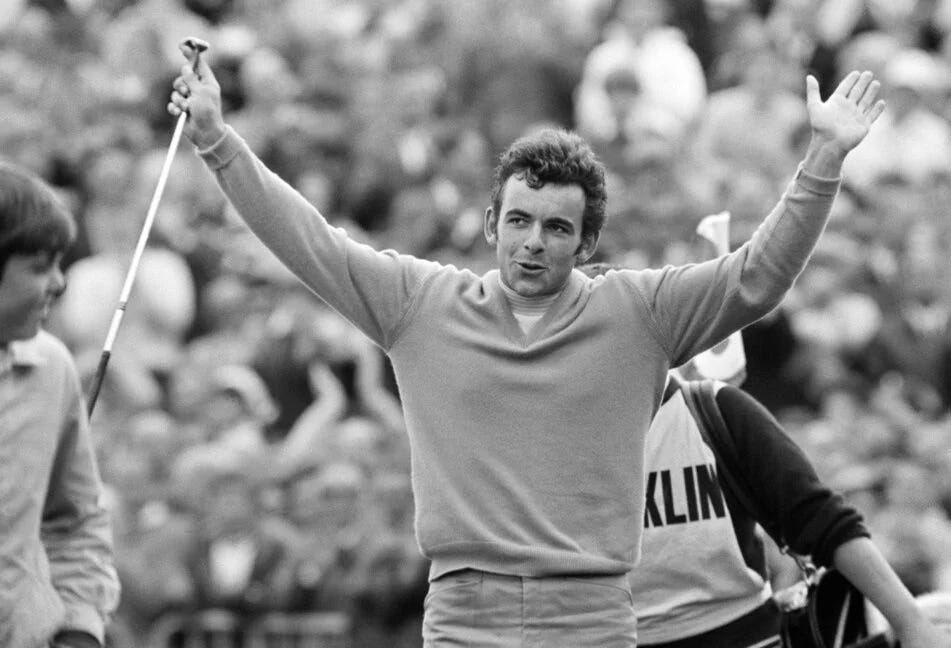
My mum would make us sandwiches and give us a Mars bar, and we would play 54 holes in a day, get picked up at 6 o'clock, bath, go to bed — and do the same thing every day for six weeks!
That's basically golf keeping me off the streets and completely entertained with a good group of people as a child. So why does golf still keep me engaged every day? Because I owe so much to golf.
It's about giving back to the game that gave me everything.
You can connect with Paul Armitage on LinkedIn here.
Also check out Terre Blanche Hotel Spa Golf Resort here, or visit the resort’s page at The Leading Hotels of the World site here.
Read more about Terre Blanche
French Luxury Firms Join Forces to Bathe in One Another's Glow
In prestigious Provence in the south of France, two of the country’s most prestigious brands have announced a partnership that will aim to perfectly encapsulate the meeting point of lifestyle, luxury and sport at the premium end of the European golf industry.


